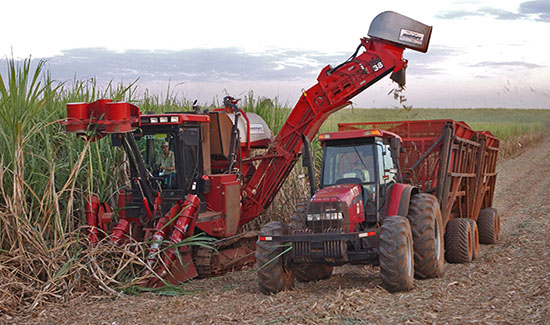Agriculture is the backbone of many African economies, providing employment, income, and food security for millions of people. However, the sector faces numerous challenges, including low productivity, limited access to markets, and inadequate infrastructure. Mechanization has been identified as a key strategy to promote agricultural development in Africa. This article explores the role of mechanization in promoting agricultural development in Africa.
Challenges Facing African Agriculture
African agriculture faces several challenges, including:
- Low productivity: African farmers have some of the lowest productivity levels in the world. This is due to limited access to improved seeds, fertilizers, and other inputs.
- Limited access to markets: Many African farmers have limited access to markets, making it difficult for them to sell their produce.
- Inadequate infrastructure: Africa’s rural infrastructure, including roads, storage facilities, and irrigation systems, is often inadequate, making it difficult to transport and store produce.
The Role of Mechanization in African Agriculture
Mechanization can play a crucial role in promoting agricultural development in Africa. Some of the ways mechanization can contribute to agricultural development include:
- Increased productivity: Mechanization can help African farmers increase their productivity by allowing them to cultivate and harvest larger areas of land more efficiently.
- Improved efficiency: Mechanization can help farmers reduce the time and labor required for farming activities, allowing them to focus on other income-generating activities.
- Enhanced crop quality: Mechanization can help farmers improve the quality of their crops by allowing them to plant, irrigate, and harvest more efficiently.
- Increased competitiveness: Mechanization can help African farmers become more competitive in local and international markets by reducing their costs and improving the quality of their produce.
Types of Mechanization in African Agriculture
There are several types of mechanization that can be used in African agriculture, including:
- Tractors: Tractors are versatile machines that can be used for a variety of farming activities, including plowing, planting, and harvesting.
- Planters: Planters are machines that are specifically designed for planting seeds. They can help farmers plant seeds more efficiently and accurately.
- Irrigation systems: Irrigation systems are machines that are designed to provide water to crops. They can help farmers improve crop yields and reduce the risk of crop failure.
- Harvesters: Harvesters are machines that are designed to harvest crops. They can help farmers reduce the time and labor required for harvesting.
Benefits of Mechanization in African Agriculture
Mechanization can provide several benefits to African farmers, including:
- Increased incomes: Mechanization can help farmers increase their incomes by allowing them to cultivate and harvest larger areas of land more efficiently.
- Improved food security: Mechanization can help farmers improve food security by allowing them to produce more food.
- Reduced poverty: Mechanization can help reduce poverty by providing farmers with a reliable source of income.
- Improved livelihoods: Mechanization can help improve livelihoods by providing farmers with access to better education, healthcare, and other services.
Challenges to Mechanization in African Agriculture
Despite the benefits of mechanization, there are several challenges that must be addressed, including:
- High upfront costs: Mechanization requires a significant upfront investment in machinery and equipment.
- Limited access to credit: Many African farmers have limited access to credit, making it difficult for them to purchase machinery and equipment.
- Lack of technical expertise: Many African farmers lack the technical expertise required to operate and maintain machinery and equipment.
- Inadequate infrastructure: Africa’s rural infrastructure, including roads, storage facilities, and irrigation systems, is often inadequate, making it difficult to transport and store produce.
Solutions to the Challenges of Mechanization in African Agriculture
There are several solutions that can be implemented to address the challenges of mechanization in African agriculture, including:
- Providing access to credit: Governments and private sector organizations can provide access to credit to help farmers purchase machinery and equipment.
- Providing technical training: Governments and private sector organizations can provide technical training to help farmers develop the skills they need to operate and maintain machinery and equipment.
- Investing in rural infrastructure: Governments and private sector organizations can invest in rural infrastructure, including roads, storage facilities, and irrigation systems, to help farmers transport and store their produce.
- Promoting private sector investment: Governments can promote private sector investment in mechanization by providing incentives, such as tax breaks and subsidies.
Conclusion
Mechanization has the potential to play a crucial role in promoting agricultural development in Africa. By increasing productivity, improving efficiency, and enhancing crop quality, mechanization can help African farmers become more competitive in local and international markets. However, there are several challenges that must be addressed, including high upfront costs, limited access to credit, lack of technical expertise, and inadequate infrastructure.

